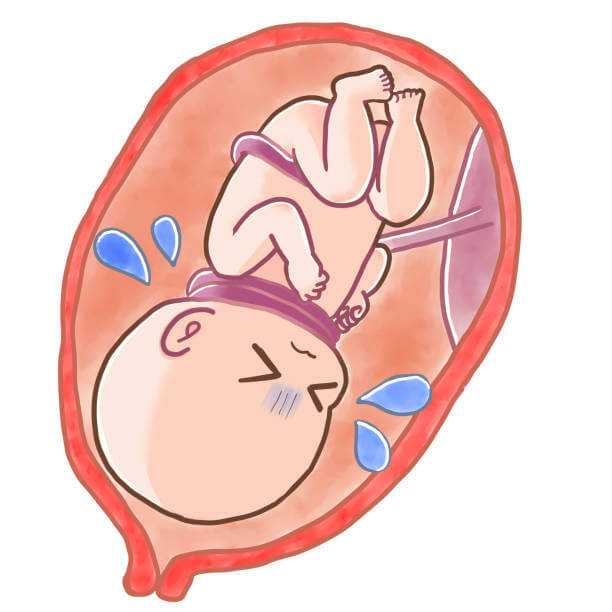How Chromosomal Abnormalities Contribute to Miscarriage

Introduction
Miscarriage is a heart-wrenching experience that affects many families worldwide. Although numerous factors can cause pregnancy loss, chromosomal abnormalities are among the leading causes. Understanding how these abnormalities contribute to miscarriage can provide clarity and help parents navigate this challenging journey.
Understanding Miscarriage
What Is a Miscarriage?
A miscarriage is the spontaneous loss of a pregnancy before the 20th week. It’s a common occurrence, affecting about 10-20% of known pregnancies. Many miscarriages occur even before a woman knows she’s pregnant.
Types of Miscarriage
- Chemical Pregnancy: Loss before the fifth week of pregnancy.
- Missed Miscarriage: No symptoms, but the fetus stops developing.
- Threatened Miscarriage: Signs like spotting but pregnancy continues.
Prevalence Rate
Approximately 50% of all miscarriages result from chromosomal abnormalities. Understanding these genetic issues can help parents seek early intervention and emotional support.
Chromosomal Abnormalities: An Overview
Definition
Chromosomal abnormalities involve changes in the structure or number of chromosomes, disrupting normal fetal development.
Types of Chromosomal Abnormalities
- Numerical Abnormalities: Extra or missing chromosomes (e.g., Trisomy, Monosomy).
- Structural Abnormalities: Defects like translocations, deletions, or duplications.
Causes of Chromosomal Abnormalities
- Errors during cell division (mitosis or meiosis).
- Inherited genetic mutations.
How Chromosomal Abnormalities Occur
Genetic Mutations
Spontaneous mutations can occur during cell division, leading to abnormal chromosome patterns.
Errors During Cell Division
- Meiosis Errors: Can result in gametes with too many or too few chromosomes.
- Mitosis Errors: May cause abnormalities during early fetal development.
Inheritance
Parents can pass on abnormal chromosomes, especially in cases of balanced translocations.
Types of Chromosomal Abnormalities Linked to Miscarriage
- Monosomy: Missing a chromosome (e.g., Turner Syndrome).
- Trisomy: Extra chromosomes (e.g., Trisomy 13, 18, or 21).
- Translocations: Chromosomes breaking and attaching to the wrong locations.
- Mosaicism: Some cells have abnormalities while others don’t.
Why Chromosomal Abnormalities Cause Miscarriage
When a fetus has abnormal chromosomes, critical developmental processes are disrupted. This can hinder the formation of organs and tissues, making survival impossible. Incompatible chromosomal combinations often trigger natural pregnancy loss to prevent further complications.
Risk Factors for Chromosomal Abnormalities
- Maternal Age: Risk increases significantly after age 35.
- Family History: Inherited abnormalities raise the risk.
- Environmental Factors: Exposure to toxins, smoking, and alcohol can lead to chromosomal defects.
Diagnosis of Chromosomal Abnormalities
- Genetic Testing: Blood tests and karyotyping detect genetic defects.
- Ultrasounds: Reveal developmental issues in the fetus.
- Amniocentesis and CVS: Tests fetal cells for chromosomal problems.
Preventive Measures and Risk Management
- Preconception Counseling: Helps identify genetic risks.
- Healthy Lifestyle: A balanced diet and avoiding harmful substances are crucial. For more pregnancy health tips, read this guide on surviving the first trimester.
How to Cope After a Miscarriage
- Emotional Recovery: Allow yourself time to grieve.
- Support Groups: Join communities for shared experiences.
- Counseling Services: Seek professional help for emotional healing.
Future Pregnancies After Miscarriage
Planning for a future pregnancy involves genetic counseling, medical screenings, and lifestyle adjustments. Consult your doctor to increase your chances of a healthy pregnancy.
FAQs about Chromosomal Abnormalities and Miscarriage
1. Can chromosomal abnormalities be prevented?
While they can’t be entirely prevented, genetic screening and a healthy lifestyle reduce risks.
2. Is age a major factor?
Yes, women over 35 face a higher risk of chromosomal abnormalities.
3. Can a healthy pregnancy happen after miscarriage?
Absolutely! Many women go on to have healthy pregnancies after one or more miscarriages.
4. What tests detect chromosomal problems?
Genetic testing, ultrasounds, and amniocentesis are common diagnostic tools.
5. Do men’s genetics play a role?
Yes, sperm abnormalities can contribute to chromosomal issues.
6. Should I consult a genetic counselor?
If you have a family history of genetic issues, consulting a genetic counselor is beneficial.
Conclusion
Understanding how chromosomal abnormalities contribute to miscarriage helps parents manage risks and explore options for future pregnancies. Stay informed and seek professional advice for optimal care.






